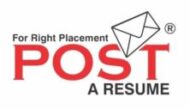With everything up in the air for virtually every kind of organization right now, forcing us all into a “what now?” mode, it can be tempting to hang back and wait until things are clearer. As HR, though, you don’t really have that luxury—so it’s time to embrace a new model of change management and start proactively shaping re-entry strategies for your organization.
Be the messenger
Right now, messaging is everything. People want their employers to cut through the noise and the anxiety and offer a clear path, and as HR you’re in a great position to do just that. People are uncertain about how to come back to work (and even why, in some cases), so effective HR leaders provide a baseline message that carries throughout an organization.
Give members of your organization a vision they can embrace moving forward. It’s likely your organization already has some form of a mission or values statement, but now is the time to revamp that to show where you’re going in the future. No one can see the future, of course, but uncertainty is not the tone you want to strike here. And you don’t want to outline sunshine-y goals that will be difficult, if not impossible.
What you can do is map out a realistic path forward for the next year, two years, and three years. Be realistic. If there’s a vaccine in six months, what does your business look like? If it’s a year or more until there’s a vaccine, how would your company’s main goals change?
Set realistic expectations
No one knows what to expect from the workplace in the near future. Is everyone working remotely? What does an office look like in the era of personal distance and masks? Whatever your plan is for moving forward, make sure you’re being clear with employees what they can expect to see. Maybe that’s only a subset of employees in the office at any given time. Maybe it’s remodeled workspaces to keep everyone distant, with limited contact within the office. Whatever you’re envisioning with your organization’s leadership, be upfront with employees. Regular check-ins and updates can help prepare employees for re-entry.
Focus on the people
A cheesy-but-more-true-than-ever motto throughout this crisis has been, “We’re all in this together.” As things inch back to normal (whatever that may be), don’t let that focus on empathy and collaboration slip away. The strength of a company isn’t always in its balance sheet—you know better than anyone in your organization that its people are the strength.
One way to show your employees that you value them is to give them insight and input into the new world at work. While few organizations are true democracies, people are more likely to engage and accept new protocols if they don’t feel like they’re being lectured from on high. Surveys and opportunities to give feedback can help everyone feel like they’re contributing to the team effort.
Patience will also be key for all organizations. People are facing more challenges at home than ever, and organizations that seem cold and focused on nothing but the business will likely find it difficult to get back up to speed. Communication should focus on well-being and safety, and acknowledge that everyone may be under stress (which rarely brings out the best in any of us). Your messaging should also reinforce the value that team members bring to the whole—no matter what their roles.
For many of us, “success” will include not only resuming (or rebuilding) normal operations, but also finding ways to feel secure and fulfilled in our work again. In HR, you’re the change agents leading everyone back to a work day that has less volatility. If you’re communicating clearly and empathetically and providing a human touchstone for all members of your organization, you’ll be well-equipped to overcome the challenges.

